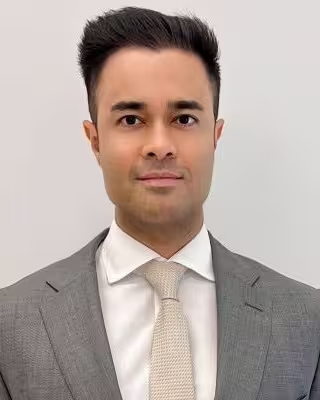Mental health - with you in mind
Talk to an experienced GP or counsellor in person or by video, with fast access to assessment, prescriptions and ongoing support.

You don’t need to be in crisis to get help
“I’d been feeling rubbish for a long time but kept telling myself other people had it worse. I was scared they’d just say I was overreacting. The GP at DocTap was really normal and kind. I ended up crying quite a lot and they just let me talk, then explained a few options without making it a big drama. We did some checks, started meds and I got set up with counselling too. I’m not suddenly ‘fixed’ but I get out of bed, I go to work most days and I don’t feel totally on my own with it anymore. That’s a big deal for me.”

Feeling low, anxious or overwhelmed is incredibly common – it happens in every family, every workplace, every age group. You don’t have to be in crisis for your mental health to matter; whether things have just started to slip or you’ve been struggling for a while, we’ll take you seriously, listen without judgement and work out a plan together.
Getting started
What we can help with
Most problems can be seen by either a GP or a counsellor. Use this guide to see who’s the best person to see first – and remember you can always switch between GP and counsellor later if your needs change.
GP for mental health
-
Low mood and depression. Assesses your symptoms, checks physical causes (like thyroid or anaemia) and discusses treatment options, including medication where appropriate.
-
Anxiety, worry and panic. Looks at symptoms, sleep, caffeine, medication and physical health, and can start medical treatment where it’s right to do so.
-
Work stress, burnout and performance pressure. Can assess how stress is affecting your health, talk about time off work and provide fit notes or letters if clinically appropriate.
-
Sleep problems and insomnia. Checks for physical or medication causes, screens for conditions like sleep apnoea and advises on safe short-term medication where appropriate.
-
Grief, loss and life changes. Makes sure your physical and mental health are not being overwhelmed, and can discuss treatment if grief has led to depression or severe anxiety.
-
Physical symptoms with a mental health impact. Investigates symptoms like headaches, chest pain, palpitations, gut issues or fatigue, ruling out physical causes and explaining how stress or anxiety may be contributing.
-
Medication, tests and fit notes. Can start and review mental health medication, arrange blood tests and provide fit notes or medical letters when needed.
Counsellor
-
Low mood and depression. Offers regular space to talk, process how you’re feeling and build practical coping strategies.
-
Anxiety, worry and panic. Helps you understand triggers, challenge unhelpful thoughts and practise tools to manage day-to-day anxiety and panic.
-
Work stress, burnout and performance pressure. Works with you over time on boundaries, confidence, perfectionism and handling pressure at work.
-
Sleep problems and insomnia. Helps you change unhelpful sleep habits and manage the racing thoughts that make it hard to switch off.
-
Grief, loss and life changes. Offers structured space to talk through loss, adjustment, relationship changes and difficult life events.
-
Physical symptoms with a mental health impact. Helps you live with long-term conditions, manage health anxiety and cope with the impact on your day-to-day life.
-
Medication, tests and fit notes. Cannot prescribe medication, order tests or issue medical certificates, but can support you alongside treatment from your GP.
Our GPs and counsellors
Experienced GPs and counsellors with a strong focus on mental health, working together to offer practical, evidence-based support. See the people behind your care and choose who feels right for you, in clinic or by video.

Alessandra Vitarelli
Counsellor
Alessandra graduated in 2015 in BSc Psychology and later in 2020 in MSc Psychodynamic Counselling and Psychotherapy. A BACP accredited counsellor, she is dedicated to supporting people through their journey of personal transformation. Alessandra delivers a client-centred support which gradually empowers individuals and enables them to make their own decisions. Alessandra has worked with individuals struggling with anxiety, stress, relationships and childhood trauma. She is fluent in Italian.

Dr Amish Patel
Deputy Medical Director- MBBS
Dr. Sunny Patel, our Deputy Medical Director, trained at King’s College London and holds additional qualifications in sexual and reproductive health. A member of the Royal College of General Practitioners, he has gained broad experience across many fields, including as a specialty doctor in sexual health and family planning. Dr. Patel has a special interest in men's health, women's health, and mental health.

Dr Nitin Mehra
General Practitioner- MBBS BSc (Hons) MRCGP
Dr Nitin Mehra obtained his medical degree from Imperial College London, where he also completed an Honours degree in International Health. He is a member of the Royal College of General Practitioners and has extensive clinical experience across multiple specialties, with a particular focus on mental health, men's health and musculoskeletal medicine. Dr Mehra is known for his thoughtful and compassionate approach, taking the time to truly listen and understand. He works in close partnership with his patients, empowering them to achieve their best health and lasting wellbeing.

Dr Teromi Selvadurai
General Practitioner- MBBS BSc MRCGP DRCOG
Dr. Teromi Selvadurai graduated from University College London and is a proud member of the Royal College of General Practitioners. She has a genuine passion for her role as a GP and is dedicated to helping her patients feel their best. With additional qualifications in obstetrics and gynaecology, Dr. Selvadurai has a special interest in women's health, mental health, and musculoskeletal medicine.
Ready to talk to someone?
Book a GP or counsellor appointment – in clinic or by video – and start getting a plan in place, not just coping on your own.
Working together
Flexible mental health care
See a GP, a counsellor or both – in clinic or by video – and switch between them as your needs change, without starting again from scratch.
- Choose where to start.
- Book a GP if you’re worried about diagnosis, medication or physical health; book a counsellor if you mainly want time and space to talk. We’ll guide you if another option would suit you better.
- Use GP and counselling together.
- Many people see both: a GP to review symptoms, medication and tests, and a counsellor for regular sessions. With your permission, we join this up so your care feels like one plan, not two separate services.
- Switch as things change.
- You’re never locked in. Move from GP to counselling, or back to the GP for a review, whenever it makes sense – you just book the type of appointment you need next.
- Mix clinic and video.
- Prefer face-to-face? Choose a clinic slot. Need convenience? Switch to video. GP and counselling appointments are available in both formats so support can fit around real life.
- Keep continuity where possible.
- Where we can, we’ll book you back with the same clinician, so you don’t have to repeat your story and you can build a relationship over time.

When talking isn't enough
Medication, tests & sick notes
Our GPs can prescribe, arrange tests and issue fit notes when it’s clinically right – always as part of a wider mental health plan, never as a quick fix.
- Evidence-based prescribing
Your GP can start or review antidepressants and other mental health medicines where appropriate, following UK guidelines and discussing benefits, risks and alternatives with you.
- Blood tests and physical checks
If there’s any chance a physical problem is contributing to how you feel, we can arrange blood tests and other checks, and monitor you safely while you’re on medication.
- Fit notes and medical letters
When your mental health affects work or study, your GP can provide fit notes and medical reports where needed, explaining clearly what adjustments or time off may help.
- Working alongside your NHS GP
With your consent, we can share key information with your NHS GP so your medication, tests and follow-up are joined up, not duplicated.
Not sure who to book with?
You can book straight in with a GP or a counsellor – choose what feels right now, and remember you can always switch later.
Frequently asked questions
- Do you offer Cognitive Behavioural Therapy (CBT)?
We do not currently offer Cognitive Behavioural Therapy (CBT). Please seek care from a different provider if you feel you require CBT.
- Does the counsellor diagnose?
Counsellors do not diagnose mental health issues. This will need to be done by a specialist. Counsellors help those experiencing mental health issues by offering a supportive environment where you can can discuss your concerns and work towards managing your symptoms.
- Can my appointment be a remote video call?
Yes, we offer both face-to-face as well as video counselling sessions. Our video appointments are conducted on our secure and confidential platform.
- How many appointments will I need?
You'll discuss the number of appointments you may need with your counsellor. If you have any questions about the expected timeline of your treatment please email us at support@doctap.co.uk
- Can the counsellor issue me a prescription or a medical letter?
Counsellors do not prescribe or write medical letters. This can be done by one of our GPs. If you think you may need a medical letter or prescription please book a mental health appointment with one of our GPs so they can assess your needs and reccomend the best onward treatment for you.
